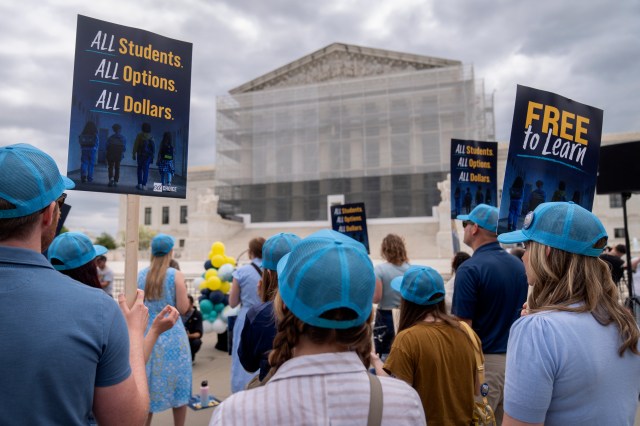Supreme Court Showdown: Should Taxpayer Money Fund Religious Charter Schools?

Supreme Court Confronts Controversial Charter School Funding Dilemma
In a pivotal hearing that could reshape educational funding policies, the Supreme Court grappled with a contentious question: Should schools with explicit sectarian affiliations be eligible for public financial support through charter school programs?
The case challenges fundamental principles of church-state separation, forcing justices to navigate the delicate balance between religious freedom and public education funding. At the heart of the debate is a critical principle: taxpayer money should not directly support institutions that prioritize religious indoctrination over secular education.
While religious institutions have long been part of America's educational landscape, the growing trend of charter schools demands a clear, principled stance. Public funds must be reserved for educational institutions that serve all students equally, without religious discrimination or preferential treatment.
The court's decision will have far-reaching implications, potentially setting a precedent that could either protect secular educational standards or open the door to widespread religious influence in publicly funded schools.
The unequivocal answer remains: No, sectarian educational institutions should not qualify for public charter school funding.
